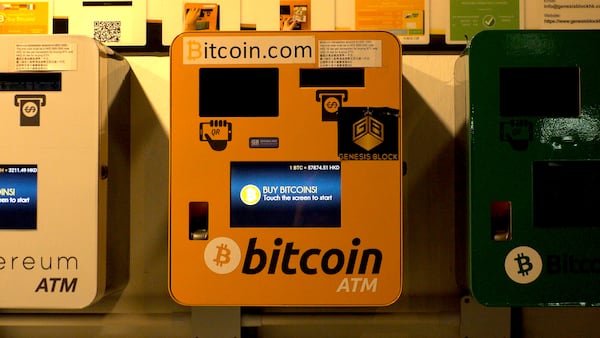- The EU is taking aim at privacy coins and self-custody wallets under new anti-money laundering regime.
- The changes, including a ban on crypto mixers, are expected this week.
- DeFi, DAOs, NFT platforms, among others, will need to increase their due diligence on users.
Restricting self-custody wallet payments. Increasing the tracking of crypto transfers. Banning privacy coins.
These are three critical changes Europe Union lawmakers are expected to make this week as they complete a three-year-process of updating the bloc’s rules on money laundering and terrorist organisation funding in the financial sector.
What’s at stake
The European Commission, Council, and Parliament are hammering out the last details on the sweeping regulations in a process known as the trilogues.
Here is what is at stake for the crypto industry, based on drafts of the legislation and internal memos from the negotiations seen by DL News:
The Anti-Money Laundering Regulation, or AMLR, will work in tandem with the Markets in Crypto-Assets regulation, or MiCA. Parts of the latter are expected to go live this year. When the AMLR law will come into force is still in negotiation, but it is expected between 2026 and 2027.
For crypto advocates, the main challenge is making sure the AMLR doesn’t confuse the regulatory clarity lawmakers established in MiCA. Ideally, both laws would work in harmony and establish clear rules for crypto ventures.
In contrast to the muddled picture in the US, the EU has drawn praise from crypto leaders for presenting a clear new regime. But with every additional law there is a risk of overburdening crypto enterprises, especially startups and other bootstrapped ventures.
“Our main focus has been to make sure that the scope of the AMLR was not going beyond the scope of MiCA,” said Tommaso Astazi, head of regulatory affairs at the Brussels-based lobby group Blockchain For Europe.
In both regulations, purely decentralised protocols are left out. But crypto firms licensed under MiCA — including some DeFi projects, DAOs, NFT platforms, and wallet service providers — are all within its purview.
Anonymising tools
The AMLR directs firms to crank up the identification and tracking of their customers’ transactions. Plus, the regulation cracks down on anonymising tools.
Since the regulation was proposed in 2021, crypto lobbyists have fought hard to make sure lawmakers don’t scrutinise the industry more than the other finance sectors.
That hasn’t been easy amid scandals such as Binance’s admission it violated US law by failing to install adequate anti-money laundering and anti-terror finance controls.
Ahead of Wednesday’s next session of trilogues on the AMLR, here are the top crypto issues on the table:
‘Not many were ready to defend these privacy enhancing tools.’
— Tommaso Astazi, Blockchain for Europe
The Council of the EU is looking to place a ban on coins which enhance anonymity. These would include privacy coins like Monero and Zcash.
“Not many were ready to defend these privacy enhancing tools,” Astazi said. Blockchain For Europe represents some of the biggest crypto firms, like Binance, Coinbase and Kraken.
This year, crypto exchanges have targeted privacy focused coins. OKX delisted several key privacy-focused trading pairs, Binance might delist them in the future as it began monitoring them.
‘High risk’ crypto mixers
The European Commission will need to present a report assessing whether to ban anonymous accounts offered by crypto service providers offering “high risk” privacy wallets, as well as crypto mixers like Tornado Cash.
The commission and council suggested the report should come three years after the laws come into force, potentially by 2027, but the parliament hopes to push that to two years.
Self-custody wallet limits
The regulation would prohibit companies from offering anonymous accounts. Yet in response to crypto industry advocates, lawmakers changed the onerous language that would prohibit firms from offering self-hosted wallets, which are managed by individuals instead of commercial ventures.
Still, the parliament is pushing to limit the amount merchants are allowed to accept from self-hosted wallets without involving a licensed crypto firm at €1,000. A breach would result in penalties.
The parliament is also asking the commission to report back on whether these provisions would need to be changed in three years time to fit with Europe’s plans to roll out a digital identity framework.
According to a person familiar with the policy process, this provision may be dropped due to resistance from the commission and council on feasibility.
“The idea is that in a peer-to-peer environment, merchants should be able to accept crypto payments without having to rely on an intermediary [like a crypto firm],” Astazi said.
“In the future, we are anticipating the development of technological solutions that will allow citizens and merchants to accept payments with crypto through personal wallets in a way that complies with know-your-customer rules.”
Customer due diligence for all crypto payments
Following Hamas’ attack on Israel on October 7, lawmakers rushed to stop terrorist organisations from using crypto to finance their operations, especially in light of reports that the Palestinian group was using digital assets to help fund its militants.
In November, the European Parliament proposed adding extra due diligence measures for firms handling crypto transactions under €1,000. Other forms of payments wouldn’t need those extra measures.
The reasoning was that terror groups often use low value transactions to conceal their funding practices.
Regulation, not directive
Crypto firms in Europe have to comply with the EU’s previous laws for anti-money laundering. To register with the national authorities, crypto service providers need to meet AML standards.
But the previous rulebook is a directive and not a regulation. A directive means that each member state can interpret and apply the rules in their own way.
That explains the vast differences in the number of crypto firm registrations in the EU. For example, Czechia has nearly 10,000 registered entities while Belgium has zero.
But a regulation is a lot stricter than a directive, and the laws will be implemented more evenly across the 27-nation bloc.
On top of that, the EU’s package on anti-money laundering establishes a new authority which will oversee the rules once they become law.
This story was updated on January 17 with more information about when the AMLR will be enforced.
Have a tip about crypto in Europe? Contact the author at inbar@dlnews.com




